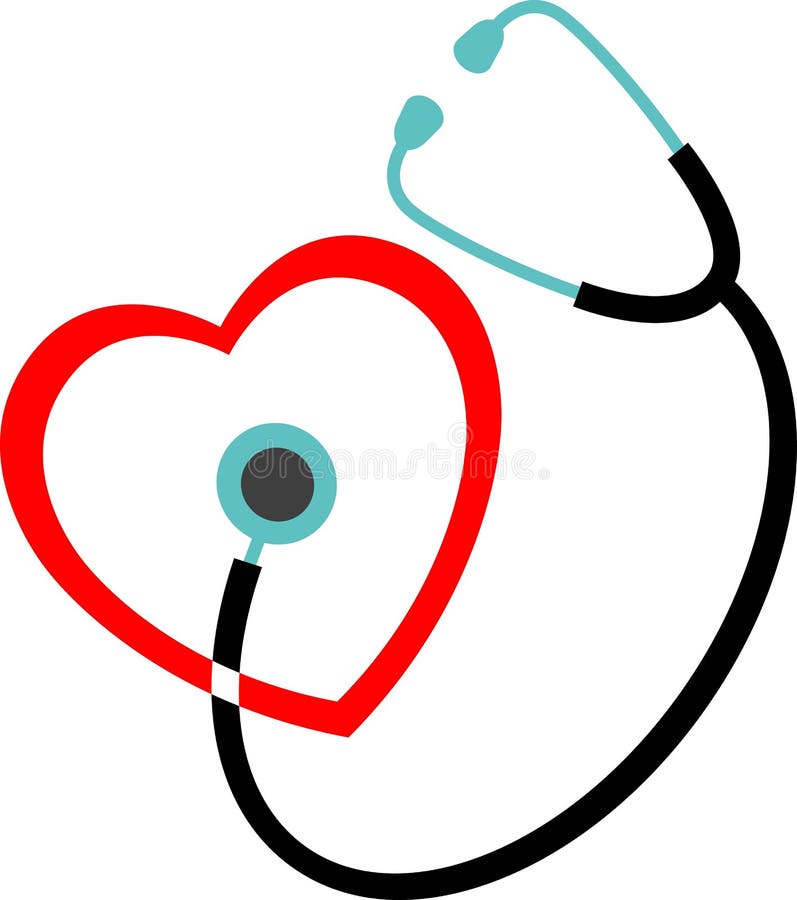Everything you need to know about Cardiology for lasting heart health
Everything you need to know about Cardiology for lasting heart health
Blog Article
Understanding the Importance of Cardiology in Modern Medical Care Services
Cardiology plays an essential role in modern healthcare, particularly as heart illness remains to be the leading reason for mortality worldwide. Developments in diagnostics and therapy have transformed client care, allowing earlier interventions and improved outcomes. The shift towards preventive cardiology empowers individuals to manage their health proactively. As modern technology remains to evolve, the assimilation of cutting-edge remedies might better redefine cardiology's effect on public wellness, motivating a more detailed exam of arising patterns and their effects.
The Occurrence of Heart Illness and Its Impact on Public Health
Although cardiovascular disease continues to be the leading reason of fatality around the world, its influence extends far past specific clients to affect public wellness systems and economic situations. The high occurrence of heart disease positions a considerable strain on health care resources, requiring enhanced financing for rehab, therapy, and prevention programs. Public wellness initiatives have to attend to risk aspects such as obesity, smoking cigarettes, and inactive way of livings, which contribute considerably to the rising occurrence of heart conditions.Moreover, the financial burden associated with heart problem is immense, incorporating not only direct medical expenses yet likewise indirect expenses connected to lost productivity and premature mortality. Areas encounter difficulties in handling these expenses, typically leading to differences in medical care access and outcomes. As the populace ages and lifestyle-related risks remain to rise, the urgency for efficient cardiology interventions ends up being extremely important. Attending to heart condition is not only a matter of private health and wellness yet also a crucial public health and wellness concern.
Breakthroughs in Heart Diagnostics and Imaging Techniques
Recent developments in cardiac diagnostics and imaging techniques have transformed the field of cardiology, improving the ability to find and keep an eye on heart illness. Methods such as cardiac MRI, CT angiography, and echocardiography have come to be progressively advanced, supplying in-depth photos of cardiac frameworks and features. These techniques allow for the early recognition of problems like coronary artery condition, heart failing, and valvular disorders.Moreover, innovations in non-invasive diagnostics, such as wearable modern technology and remote tracking gadgets, have encouraged individuals and doctor. These tools help with real-time tracking of heart rhythms and various other crucial indications, causing prompt interventions. Furthermore, expert system is being incorporated right into imaging analysis, enhancing accuracy and efficiency in medical diagnosis.
Advancements in Therapy Choices for Heart Conditions
Current improvements in cardiology have caused significant advancements in therapy options for heart problems. These consist of advanced medical strategies that improve step-by-step outcomes and emerging drugs that offer brand-new avenues for therapy. As the area advances, these developments play an essential role in enhancing person treatment and outcomes.
Advanced Surgical Techniques
Advancements in medical techniques have transformed the landscape of cardiology, using brand-new hope for clients with heart disease. Minimally intrusive procedures, such as catheter-based interventions, have actually significantly minimized recuperation times and healthcare facility keeps. Techniques like robotic-assisted surgical treatment enhance accuracy, permitting cosmetic surgeons to navigate complicated physiological structures with better accuracy. Developments in imaging modern technology help with real-time visualization throughout treatments, boosting end results. Transcatheter aortic shutoff substitute (TAVR) exhibits an innovation in dealing with aortic constriction, making it possible for shutoff substitute without open-heart surgery. Furthermore, hybrid strategies that combine surgical and catheter-based techniques give customized remedies for various heart concerns. These innovative medical strategies not just improve client security however likewise expand treatment options, highlighting the essential duty of innovation in modern cardiology techniques.
Arising Treatments and medicines
As the landscape of cardiology remains to evolve, arising drugs and therapies play a critical function in improving therapy alternatives for heart conditions. Advancements such as novel anticoagulants and advanced lipid-lowering agents have transformed the monitoring of heart diseases, greatly minimizing individual morbidity and mortality. Furthermore, the development of genetics therapies and regenerative medicine supplies appealing methods for treating problems previously considered irreversible. Professional trials are continuously revealing the effectiveness of these treatments, pushing the borders of traditional therapies. The combination of digital wellness innovations helps with tailored medicine, permitting for tailored treatment strategies based on genetic and way of living factors. Jointly, these developments emphasize the dynamic nature of cardiology, improving person outcomes and redefining requirements of care in modern health care.
The Duty of Preventive Cardiology in Client Care
Precautionary cardiology plays a crucial role in patient care by focusing on the identification of danger elements that add to heart problem. Via lifestyle modification techniques and early detection methods, health care companies can properly lower the occurrence of cardio events - Dr Garcia. This proactive method not only enhances person outcomes however likewise advertises long-term health and wellness
Threat Factor Identification
While heart diseases remain a leading root cause of morbidity and mortality worldwide, efficient threat variable identification functions as a foundation of precautionary cardiology. Determining danger variables such as hypertension, hyperlipidemia, family members, and diabetes mellitus history is important for early intervention. Medical care experts make use of numerous evaluating methods to evaluate these factors, enabling customized preventive actions. Furthermore, understanding an individual's lifestyle options, such as smoking and physical lack of exercise, even more educates risk analyses. This complete evaluation makes it possible for clinicians to establish customized treatment plans targeted at mitigating threats. By prioritizing danger factor identification, medical care systems can enhance person results and lower the general burden of heart diseases, ultimately adding to boosted public health and wellness strategies and resource appropriation.
Way Of Life Alteration Techniques
A plethora of studies highlights the critical function of way of living modification methods in lowering cardiovascular illness risk. These approaches encompass dietary changes, enhanced exercise, smoking cigarettes cessation, and weight monitoring. By adopting a heart-healthy diet rich in fruits, vegetables, whole grains, and lean proteins, individuals can lower cholesterol levels and blood pressure. Regular exercise strengthens the heart and improves general cardiovascular health and wellness. Furthermore, giving up smoking greatly decreases the risk of cardiovascular Homepage disease and improves healing rates for those with existing conditions. Weight management further adds to cardio wellness by minimizing various other threat variables such as diabetes mellitus and high blood pressure. Carrying out these way of life alters not only promotes individual well-being yet additionally functions as a keystone of preventative cardiology in individual care.
Early Detection Strategies
Way of living alterations substantially add to lowering heart disease risks, yet they are most effective when coupled with early detection techniques. Preventative cardiology highlights the relevance of identifying prospective heart concerns prior to they escalate into significant problems. Strategies such as high blood pressure tracking, cholesterol screening, and progressed imaging innovations like echocardiograms play essential functions in evaluating cardiovascular health. Biomarkers and genetic screening also boost the accuracy of very early detection, enabling customized preventative approaches. Regular cardiac risk assessments encourage doctor to intervene proactively, potentially avoiding cardiovascular disease and strokes (Cardiology Jupiter). By incorporating these early detection approaches into routine treatment, patients can gain from prompt way of living interventions and targeted therapies, inevitably enhancing outcomes and enhancing lifestyle
Integrating Technology Into Cardiology Practices
As improvements in modern technology continue to reshape various areas, the integration of cutting-edge devices and systems right into cardiology methods has become important for improving client treatment and end results. Telemedicine systems permit cardiologists to keep an eye on patients from another location, enhancing accessibility to care while reducing the worry on healthcare facilities. Wearable devices, such as smartwatches, make it possible for continuous heart rate monitoring, notifying both individuals and doctors to prospective problems in real-time. Additionally, expert system (AI) is being used to analyze substantial quantities of cardiac information, assisting in early diagnosis and tailored treatment plans. Advanced imaging techniques, consisting of 3D echocardiography, boost visualization of heart structures, leading to much more specific interventions. Digital health records (EHRs) enhance individual details management, ensuring that cardiologists have prompt accessibility to crucial information. With each other, these technological innovations are changing cardiology, promoting positive administration and enhanced health results for clients with cardiovascular conditions.
The Significance of Person Education And Learning and Involvement
Patient education and interaction play a crucial role in the administration of cardio wellness. By equipping clients with knowledge concerning their problems, treatment alternatives, and way of life modifications, doctor equip people to take an active duty in their care. This proactive method can result in improved adherence to prescribed medications, nutritional modifications, and workout regimens, inevitably decreasing the danger of complications.Engagement also fosters a strong patient-provider relationship, motivating open interaction and trust fund. When patients really feel informed and entailed, they are most likely to voice worries and ask concerns, which can cause better clinical outcomes. In addition, academic sources, such as workshops or digital systems, can improve understanding and advertise self-management strategies. On the whole, focusing on person education and engagement is essential for boosting cardiovascular health, boosting quality of life, and minimizing health care expenses connected with cardiovascular diseases.
Future Trends in Cardiology and Their Potential Influence

Regularly Asked Concerns
What Way Of Life Changes Can Minimize Heart Problem Threat?
The existing concern addresses way of living adjustments that can substantially minimize heart illness risk. Cardiology care. Taking on a balanced diet regimen, engaging in normal physical task, preserving a healthy and balanced weight, taking care of tension, and preventing cigarette can significantly boost cardiovascular health
How Can I Acknowledge Very Early Signs of Heart Problems?
Acknowledging early signs of heart issues includes surveillance signs such as upper informative post body discomfort, lack of breath, tiredness, and irregular heartbeat. Timely awareness of these signs can prompt essential medical evaluation and treatment for better results.
What Are the Differences Between Cardiologists and Heart Surgeons?
The differences between cardiologists and heart surgeons hinge on their functions; cardiologists mostly manage and diagnose heart conditions via non-invasive techniques, while cardiac specialists execute procedures to correct architectural heart issues. Each plays an essential, distinct function.

How Usually Should I Get My Heart Wellness Checked?
The frequency of heart medical examination differs based upon private threat elements. Typically, grownups must undertake assessments every one to 2 years, while those with status quo might call for even more constant evaluations as recommended by health care professionals.
What Function Does Genes Play in Heart Problem Threat?
Genetics significantly affects cardiovascular disease risk, with familial patterns indicating acquired problems. Certain genes can predispose people to high blood pressure, cholesterol concerns, and various other cardiovascular issues, highlighting the importance of genetic screening in examining heart health and wellness. Heart condition remains the leading reason of death internationally, its effect extends far beyond specific patients to impact public health systems and economic climates. Public health initiatives have to resolve danger aspects such as excessive weight, smoking, and inactive way of lives, which contribute considerably to the increasing occurrence of heart conditions.Moreover, the economic worry associated with heart illness is immense, incorporating not only straight medical prices however likewise indirect expenses associated to shed performance and early death. Preventative cardiology plays a vital function in individual care by concentrating on the identification of danger aspects that contribute to heart disease. Fabricated knowledge (AI) and maker learning are enhancing diagnostics and patient monitoring, making it possible for early detection of heart diseases. The distinctions in between cardiologists and heart cosmetic surgeons lie in their functions; cardiologists mainly handle and identify heart problems with non-invasive approaches, while heart specialists execute surgical procedures to deal with structural heart issues.
Report this page